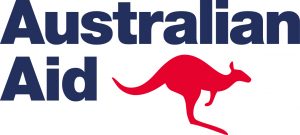The launch marks a significant milestone in Cambodia’s progress towards a prohibition on asbestos with a National Action Plan to Eliminate Asbestos Related Disease to be drafted this year. The Action Plan is likely to contain a ban date to be enacted within the next four years, or possibly sooner.
The profile paints a detailed picture of asbestos importation and use of asbestos in Cambodia as well as the health implications for workers and the community. Last year, Cambodia’s imports of chrysotile (white asbestos) containing materials were overwhelmingly roof sheets. However, there has been a sharp reduction in imports of other panel sheets and tiles over the last five years. Notably imports of fabricated materials containing crocidolite (blue asbestos) continued making Cambodia one of the few countries still importing blue asbestos.
The launch was reported widely in Cambodia, with the Phnom Penh post quoting Tun Sophorn, the coordinator for the International Labour Organisation (ILO) in Cambodia.

Mr. Sok Kin (left), President of the Building and Wood Workers Trade Union Federation of Cambodia (BWTUC) with Australia’s Ambassador to Cambodia, Mr. Pablo Kang at the launch of the Cambodian National Asbestos Profile.
“This was a joint effort by our working group to update the Cambodia national asbestos profile. It will enable the relevant officials to set priorities to eliminate the use of asbestos in the workplace,” he said.
Union Aid Abroad – APHEDA provided technical advice to Cambodia’s Asbestos Technical Working Group, working with the International Labour Organization, trade unions, business associations, medical professionals and 11 government ministries. APHEDA will continue this role in developing the National Action Plan to Eradicate Asbestos Related Diseases with the support of the Asbestos Safety and Eradication Agency and Australian Aid.
This program is supported by the Australian Government through the Australian NGO Cooperation Program (ANCP), and members of Union Aid Abroad – APHEDA.
